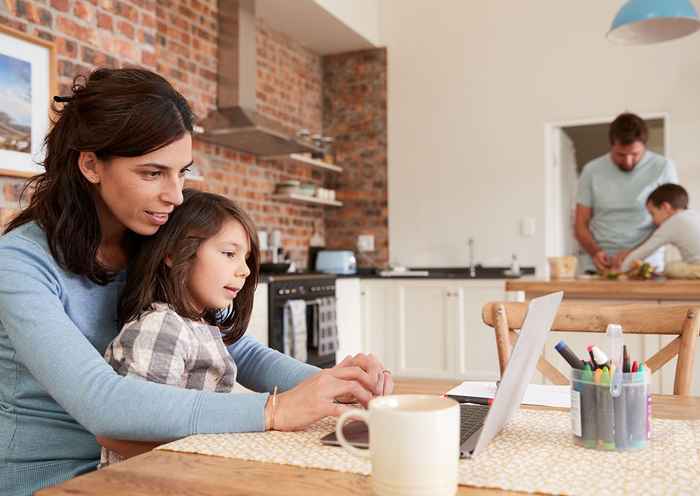How are Dutch families mentally coping with COVID 19?
18 January 2021

In March 2020 the Netherlands went into lockdown in response to the pandemic and schools had to close their doors, to open again in May (primary schools) and June (secondary schools). The pandemic brought potential stress to families with children who had to cope with balancing work and home schooling, with possible fear for an unknown virus, with the impact of restrictions on social life and later the relaxing of the measures. How did this affect their mental state?
Between April and September 2020 3,672 surveys were completed by parents (or guardians) of children aged 6-17 years reporting on how they and their children mentally coped with the pandemic. This survey is part of the ongoing Covid-19 Family Study, coordinated by the University of Amsterdam. The surveys focused on parent mental health, child emotional and behaviour problems, and parenting during and after the lockdown, as well as worries relating to Covid-19.
A positive message and cautionary tale
Based on the completed surveys the researchers report both a positive message and cautionary tale. The mental health of parents gradually improved from April to September 2020, coupled with greater belief in their own parenting abilities and less use of physical punishment towards their children. This suggests that although parents were quite affected at first, their well-being and confidence in parenting skills improved once they got used to the situation more and when lockdown measures eased.
At the same time, parents of primary school aged children seemed affected most by the school closures: they reported higher scores for depression, anxiety, and stress, as well as more parent-child relationship problems when their children were at home during term-time.
Children have shown resilience during the Covid-19 pandemic - with parents reporting decreases in children’s emotional and behavior problems from April to September 2020 and no differences in emotional or behavior problems during school closures.
Regarding worries about the virus, parents worried most about the government regulations surrounding Covid-19 and the impact on society and economy. The majority of children expressed worry to their parents about the government regulations surrounding Covid-19, but only a minority of children expressed worry about themself or others becoming ill with Covid-19.
In August 2020 the majority of parents reported feeling safe about their children attending school after the summer school holiday. Parents placed far more importance on social distancing measures and good hygiene than on the wearing of facemasks by staff and children.
More about the survey
Parents (or guardians) of children aged 6-17 years completed the first survey between April 2020 and June 2020. Parents were invited to complete a follow-up survey at 6-weeks, 3-months, and 6-months after the first survey. Surveys were completed by only one parent per family with one child in mind – which remained the same across waves. Another wave of data collection is still ongoing and parents will be contacted again in April 2021.
Report details
Creasey, N., Lalihatu, E., Leijten, P. and Overbeek, G., 2021. Covid-19 Family Study report: April 2020- September 2020. Amsterdam: University of Amsterdam.